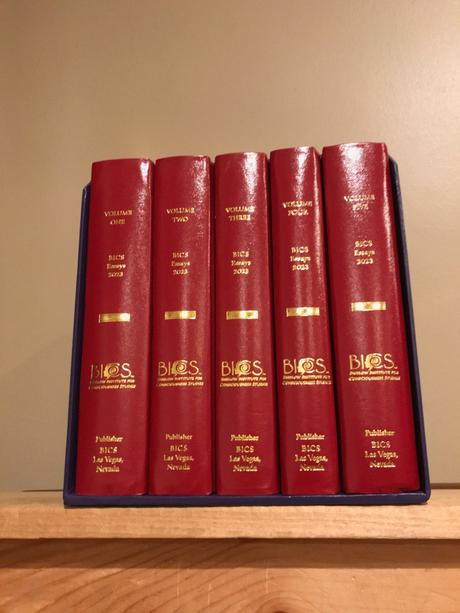Robert T. Bigelow is wealthy enough to speak his mind. A hotel and aerospace entrepreneur, Bigelow has made no bones about his belief that aliens are among us, for example. After the death of his wife in 2020 he initiated a contest for essay writers to give their best proof that consciousness survives death. The results took the form of a five-volume, twenty-eight essay collection that, according to those who’ve read all, is impressive. Having spent my life studying religion, I can trace my motivation back to this basic concern. As a child I was terrified of Hell—a fear that has never abandoned me—and consequently studied religion as a means of reassurance. I’m not alone in this; the whole Methodist movement began because of John Wesley’s similar concern. Most of us don’t have the money Bigelow has to attempt reassurance.
Having said that, some time ago, the Bigelow Institute for Consciousness Studies—the organization behind the essay contest—offered $500,000 for the first place essay. The second received $300,000 and the third $150,000. Those who were selected for publication received a copy of the five-volume set. Then, the Institute made an announcement: while supplies lasted, anyone with a legitimate interest in the subject could write to them for a free copy. I’m not of the intellectual caliber of these essayists, but I have studied religion my entire life. And I am quite interested in what the BICS is calling “absolute proof of life after death.” All it cost was an email. They even paid for shipping.
The set arrived yesterday. The postal worker at the door seemed apologetic (I had to sign for it), noting the package was heavy. Now, this is going to take some time to get through. The five volumes are handsomely produced. The hardcovers are printed in full color (I know from work this is quite costly). They have gilt edges and ribbon markers. And a wealth of thought within. I guess you’ll need to stay tuned here to find out, after I finally finish, if the results are assuring. Glancing through the table of contents, and having looked over the judges of the contest, I’m optimistic. Although Robert Bigelow stands at the opposite end of the political spectrum to me, we both understand that deep-seated human need to know physical death is not the end of who we are. Even the famous skeptic Harry Houdini wanted the answer to this question as he debunked mediums in search of someone legitimate. In any case, I’ve got years of interesting reading ahead of me.

